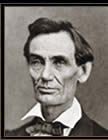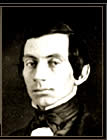Sweet Mickey over Seasoned First Lady??? You do the math! READ the bios and tell me what you think!

Mirlande Manigat

Michel Martelly
In Haiti, preliminary results in the presidential run-off suggest that the singer Michel Martelly is the winner. The figures indicate he secured more than two-thirds of the vote, beating the former first lady, Mirlande Manigat. The new president will face the challenges of a continuing cholera epidemic and the aftermath of last year’s devastating earthquake.
ABOUT Mirlande Manigat:
Mirlande Manigat is the presidential candidate for the right of center Rally of Progressive National Democrats (RDNP) party. On October 18, 2010, Dr. Manigat also received the endorsement of the Collectif pour le Renouveau Haïtien (COREH).[1]
Her platform for the presidency includes a focus on education of the youth of Haiti, and lifting the long-standing and restrictive constitutional conditions on dual nationality.[2] She specifically promotes opening government positions for members of the Haitian diaspora. Manigat also aims for a more independent Haitian state, one less reliant upon and subject to foreign governments and NGOs.[1] http://en.wikipedia.org/wiki/Mirlande_Manigat
Soft-spoken former first lady Mirlande Manigat was an occupant of Haiti’s presidential palace for just a few brief months before her husband Leslie was ousted in a 1988 coup.
She could return as the quake-hit Caribbean nation’s first elected female leader if she wins an election run-off on Sunday — but the palace has been in ruins since a massive earthquake more than a year ago.
“Haitians do not want continuity. They want change, to see a rupture from the past,” she said in a recent interview with AFP.
The 70-year-old academic and grandmother is a seasoned politician, having been elected senator in 1988 and again in 2006 representing the Rally of Progressive National Democrats (RDNP) party, which she helped found.
Now Manigat is vying for the unenviable opportunity to lead the poorest country in the Americas, a nation that has suffered a seemingly perpetual cycle of political upheavals and natural disasters.
Her rival is popular singer and carnival entertainer Michel Martelly, a 50-year-old political novice who until recently was better known as his on-stage persona “Sweet Micky.”
A win would not only make Manigat the first woman elected president of Haiti, but it would also put the country’s long-divided opposition in power.
Manigat, who along with her husband has led the RDNP, one of Haiti’s better organized political parties, for some 30 years, maintains that she has both the honesty and the gravitas to lead her shattered nation. “People call me ‘Mommy,'” she said in a recent US newspaper interview.
“They know that at my age I cannot be tempted by the perversions of politics like money or dictatorship. People see me as a mature person, someone with experience, and they know very well I am not a puppet.”
US-based Haiti expert Robert Fatton, said the stark contrast with the other candidate, Martelly, provides Manigat easy campaign fodder.
“Manigat will probably portray herself as the mother of the nation and paint Martelly as an adventure into the unknown,” he said.
A bespectacled law professor who has made education reform a key plank of her campaign, Manigat studied at the Sorbonne in Paris, as well as at the respected Paris Institute of Political Studies.
“You have someone who is clearly very smart, but the question is whether she has the kind of populist touch that is required to win a Haitian election,” Fatton said.
Manigat won the most votes in a corruption-plagued first round in which only 20 percent of the 4.7 million eligible Haitians cast ballots. But Martelly, with broad support among young voters, enjoys a slim lead in the latest opinion polls.
With victory will come the challenge of rebuilding the country following a devastating January 2010 earthquake that flattened the capital, killing more than 220,000 people.
More than 14 months on, hundreds of thousands of Haitians whose homes and livelihoods were obliterated by the 7.0-magnitude quake still live in squalid tent cities, losing hope for the future.
Manigat and her husband, who is now 80, lived in France for 13 years, then Trinidad and Venezuela before settling in Haiti after the ouster of dictator Jean-Claude “Baby Doc” Duvalier.
Both of her senate terms were cut short — in 1988 because of her husband’s ouster from the presidency and in 2006 when she resigned in protest at disputed elections that saw the current president, Rene Preval, emerge victorious.
She would not be Haiti’s first female president — Ertha Pascal-Trouillot, an attorney, was appointed provisional president following a military coup in 1990 and briefly held the office.
She preceded Jean-Bertrand Aristide, Haiti’s first democratically-elected president, who is expected to make a sensational return to the country on Thursday, just three days before the crucial polls. –AFP http://www.thenewage.co.za/12811-1020-53-Exfirst_lady_Manigat_aims_to_lead_quakehit_Haiti
ABOUT Michel Martelly:
Michel Joseph Martelly (born February 12, 1961), more popularly known as “Sweet Micky”, is the current President-elect of Haiti following his victory in the Haitian presidential election of 2011. Martelly is a performing and recording artist, composer, and musical sociopolitical activist.
In July 2010, he announced that he would be running for the Presidency of Haiti. Martelly previously supported the disbanded Haitian military, FAd’H, and supporters of the 1991 coup d’état, such as the notorious killing squad FRAPH.
On April 4, 2011 a senior Haitian official announced that Martelly won the run-off Haitian Presidential Election against candidate Mirlande Manigat.[5][6] However, official results are not expected until April 16.
The middle-class son of a petroleum plant supervisor, Martelly taught himself to play the piano by ear. After graduating from high school and unsuccessfully attempting to study medicine (Michel Martelly was never admitted to the Medical school in Haiti. People with connection often get admitted to Haiti’s public University, Martelly was admitted to the Faculte des Sciences, he failed his courses and left the school), Martelly was briefly enlisted in the Haitian Military Academy before dropping out after impregnating a General’s daughter.
He emigrated to the United States with an American wife, where he enrolled at Red Rocks Community College in Lakewood, Colorado and worked in a local grocery store. In 1986, after just one semester, he divorced and returned to Haiti just as Jean-Claude Duvalier, then president-for-life, was heading into exile. He returned stateside with his then-girlfriend, Sophia, and married her in Miami, Florida and had his first child, Olivier. Martelly continued to work on a construction site for a year until moving back to Haiti in 1987. Upon their return to Haiti, Martelly began playing keyboard as a fill-in musician in local venues in Petionville and Kenscoff, suburbs of Port-au-Prince.
Martelly’s relationships with members of Haiti’s past governments and with U.S. diplomats has been met with mixed opinions and criticism by music fans and activists alike. Martelly is reportedly a friend of President René Préval, and has previously acknowledged such friendships as well as the one with Lt. Col. Michel François, the former Port-au-Prince police chief, who was later convicted of human rights abuses in absentia.
Prior to the coup that overthrew Aristide, Martelly operated a nightclub called the Garage, often frequented by Haitian military and other members of the ruling class. Later, after a second coup had overthrown Jean-Bertrand Aristide, Martelly played a free concert to oppose the return of the ousted Haitian president and any American presence on the troubled island. The charismatic Martelly refused to back down from criticism of his affiliations with politicians and government officials. As he once stated to a news reporter, “I don’t have to defend myself….It’s my right. It’s my country. I can fight for whatever I believe in.”
In 1997, Michel Martelly participated in “Knowledge is Power”, an HIV educational music video with a message about preventing the spread of HIV. His humanitarian work as the President of the Foundation Rose et Blanc, created by his wife Sophia and himself, to help the poor and disenfranchised of the country, was the basis for his choice as the Good Will Haitian Ambassador for the Protection of the Environment by the current Haitian Government. In 2010 he ran for President of Haiti where he challenged the results as to whether he placed second, making the runoff, or third. On February 3, 2011 it was announced that he will participate in a run-off election scheduled for March 20, 2011. Martelly proposes to re-instate the Armed Forces of Haiti, which were disbanded by former Haitian President Aristide in 1995.
Martelly currently lives in Haiti, but held a second home in Palm Beach, Florida for about a year. He lives with his wife and manager, Sophia, and their four children. In 2006, Martelly announced his unofficial retirement from recording and performing but two years later announced a return to music with a new single, Magouye, and the video/short film, “Bandi Legal”. He is a cousin of Port-au-Prince hotel manager and musician Richard Morse http://en.wikipedia.org/wiki/Michel_Martelly









